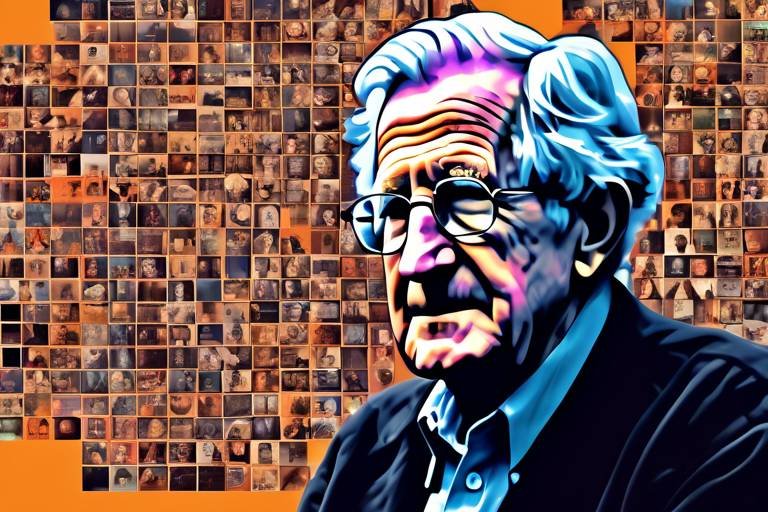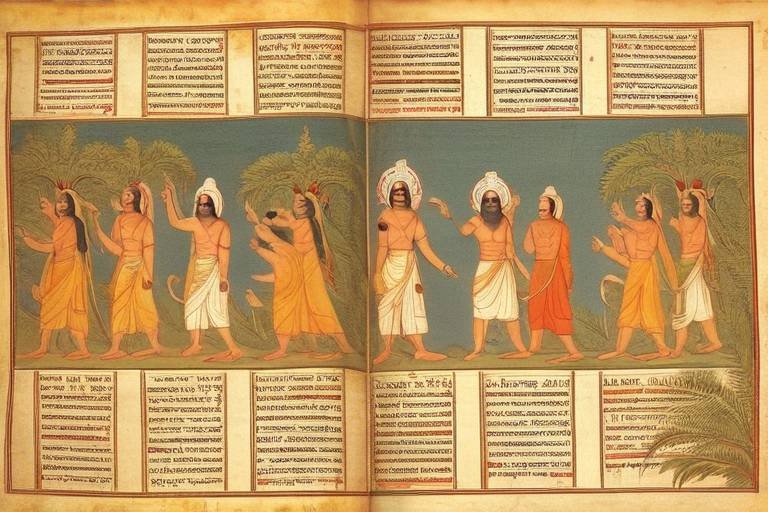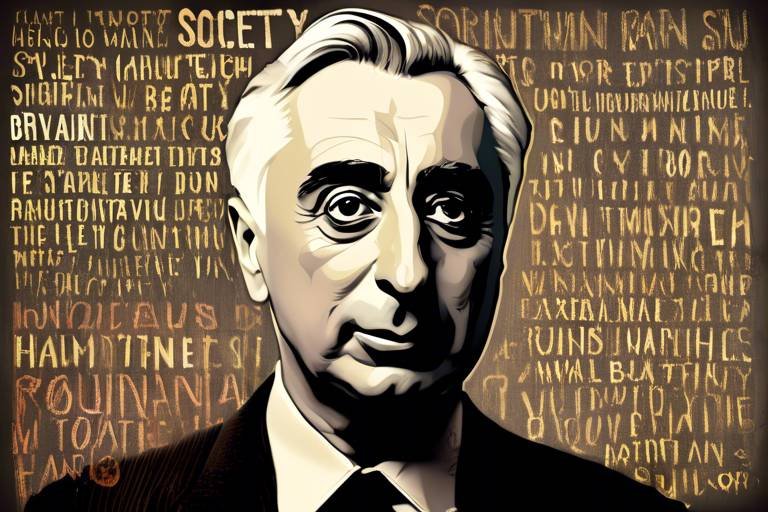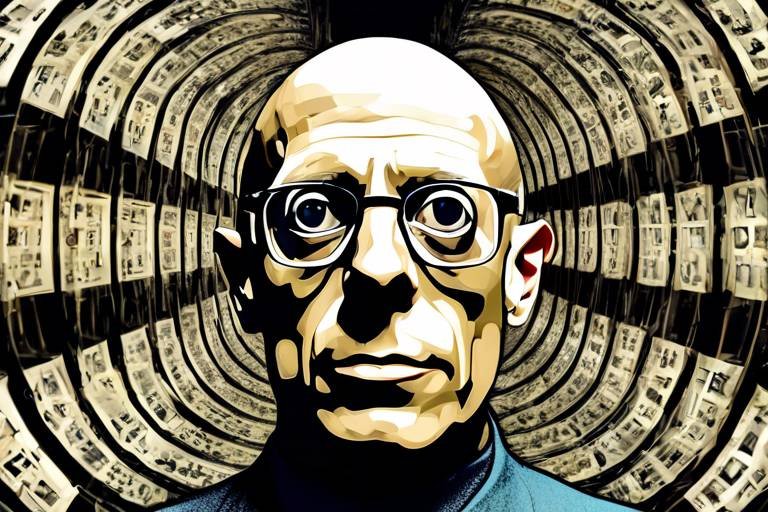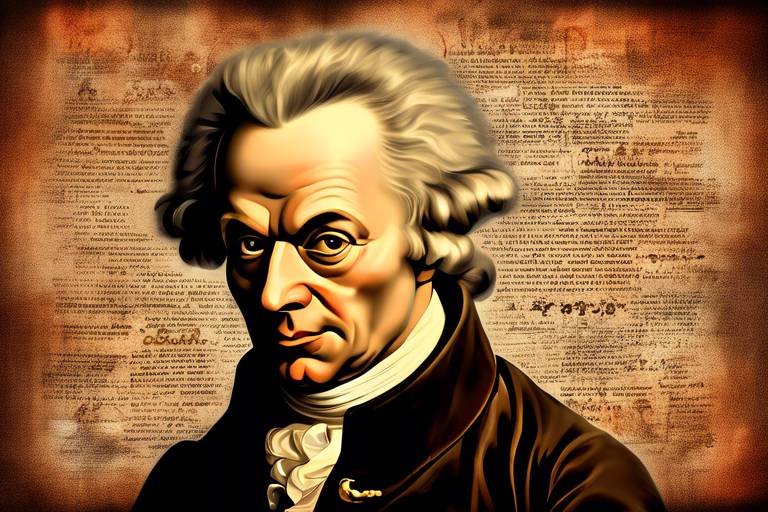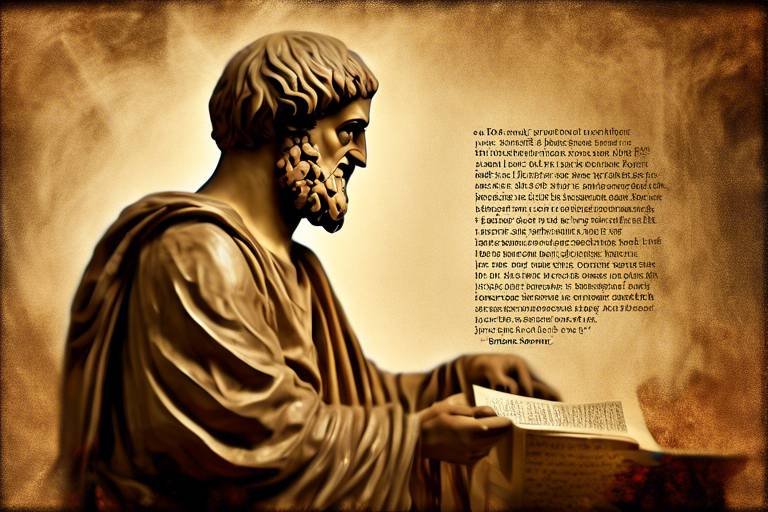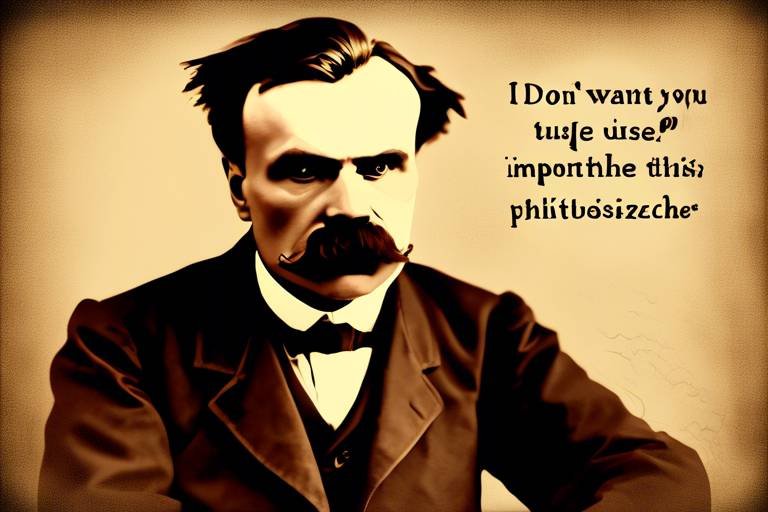An Overview of Noam Chomsky's Political Philosophy
Noam Chomsky, a towering figure in linguistics and philosophy, has also made significant contributions to political thought. His political philosophy is a tapestry woven from critiques of power, media influence, and the responsibilities of intellectuals. Chomsky’s ideas challenge us to rethink the structures that govern our lives and to question the narratives presented to us. At the heart of his philosophy is a profound skepticism towards authority and a passionate advocacy for social justice. He argues that the mechanisms of power often operate in ways that undermine democracy, creating a society where inequality thrives. This article delves into the key components of Chomsky's political philosophy, exploring how his insights can empower us to navigate the complexities of modern governance and media.
Chomsky argues that political power often operates in ways that undermine democracy and promote inequality. He believes that authority should always be questioned and that the concentration of power in the hands of a few is inherently dangerous. His critiques are not just academic; they resonate with everyday experiences of disenfranchisement and helplessness that many people feel. Chomsky's work serves as a clarion call for the masses to recognize their agency in challenging oppressive systems. He posits that true democracy requires vigilance and active participation, encouraging citizens to engage with the political process rather than resigning themselves to the status quo.
In today’s world, the media plays a pivotal role in shaping public perception and discourse. Chomsky emphasizes how corporate interests heavily influence news coverage, often leading to misinformation and a lack of critical analysis among the populace. He argues that the media does not merely report the news; it actively shapes the narrative, often aligning with the interests of the powerful. This manipulation of information can create a distorted view of reality, which in turn affects public opinion and policy decisions.
In his seminal work, Manufacturing Consent, Chomsky discusses how media serves as a tool for propaganda, shaping public opinion to align with elite interests. This concept highlights the systematic manipulation of information in democratic societies, where the voices of the few often drown out the voices of the many. Chomsky’s analysis reveals how consent is manufactured through controlled narratives, leaving little room for dissenting opinions. He urges individuals to critically assess the information they consume and to seek out diverse perspectives.
Chomsky points out that concentrated media ownership limits diversity of thought, leading to a homogenized narrative that favors powerful entities. This situation raises concerns about the integrity of democratic processes. When a handful of corporations control the majority of media outlets, the risk of biased reporting increases, and the public is left with a narrow view of complex issues. Chomsky’s insights encourage us to advocate for media reform and support independent journalism as a means to foster a more informed citizenry.
To combat the influence of corporate media, Chomsky advocates for greater media literacy among the public. He encourages individuals to question sources and seek alternative viewpoints. This approach empowers citizens to navigate the complexities of information in the digital age. By fostering critical thinking skills, we can better discern the motives behind the information presented to us and make more informed decisions. Chomsky believes that an educated and engaged public is essential for a functioning democracy.
Chomsky believes intellectuals have a responsibility to challenge authority and advocate for social justice. He argues that they should use their knowledge to inform and engage the public on critical issues. Rather than remaining aloof or complicit, intellectuals must act as catalysts for change, using their platforms to amplify marginalized voices and highlight injustices. Chomsky’s call to action is a reminder that knowledge is not just power; it is a tool for liberation.
Identifying with anarchist principles, Chomsky advocates for decentralized forms of governance. He argues that true democracy can only be achieved through the dismantling of oppressive structures and promoting participatory decision-making. This vision of governance emphasizes the importance of grassroots involvement and local autonomy, allowing communities to self-organize and make decisions that directly affect their lives.
Chomsky emphasizes the importance of local governance and community autonomy. He believes that empowering individuals at the grassroots level can lead to more equitable and just societal structures. By fostering a sense of ownership and responsibility within communities, we can create systems that prioritize human needs over bureaucratic red tape. This decentralized approach not only enhances democratic participation but also encourages innovation and resilience.
Chomsky critiques capitalism for perpetuating inequality and exploitation. He argues that economic systems should prioritize human needs over profit, advocating for alternatives that promote social welfare and environmental sustainability. In Chomsky's view, the relentless pursuit of profit often comes at the expense of the most vulnerable members of society. He calls for a reimagining of our economic priorities, focusing on creating a just and sustainable world for all.
- What is Noam Chomsky's main contribution to political philosophy?
Chomsky's main contribution lies in his critiques of power structures, media influence, and the responsibilities of intellectuals to advocate for social justice. - How does Chomsky view the role of media in democracy?
Chomsky believes that the media often serves elite interests, shaping public opinion through controlled narratives and limiting diverse viewpoints. - What are Chomsky's thoughts on capitalism?
Chomsky critiques capitalism for perpetuating inequality and advocates for economic systems that prioritize human needs and sustainability.
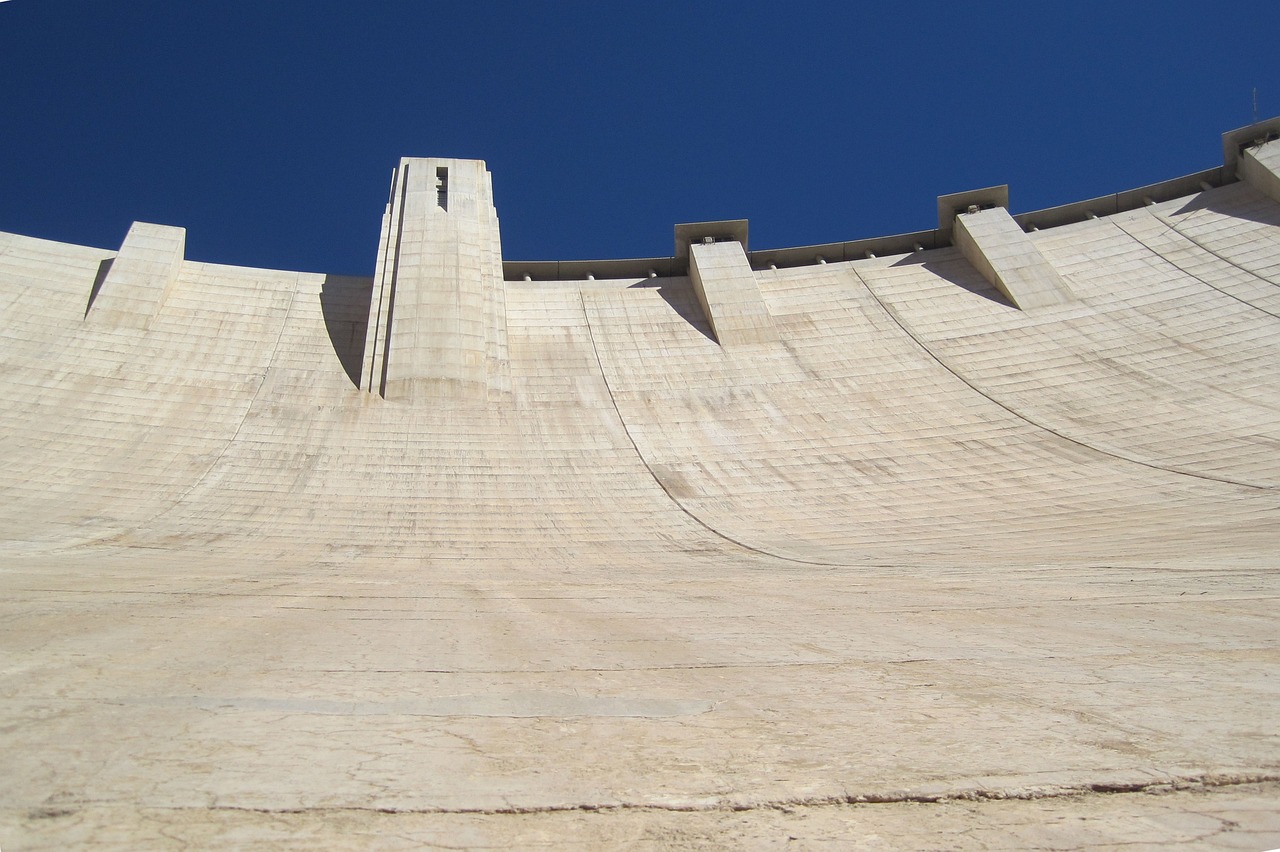
Chomsky's Critique of Power Structures
Noam Chomsky's critique of power structures is a cornerstone of his political philosophy. He argues that political power often operates in ways that undermine democracy and promote inequality. Chomsky's perspective is not just a theoretical exercise; it's a passionate call to action for individuals to recognize the often hidden dynamics of authority that shape their lives. He challenges the legitimacy of authority figures and the concentration of power in the hands of a few, asserting that such systems inherently lead to oppression and injustice.
One of the key ideas Chomsky presents is the notion that those in power frequently manipulate the mechanisms of governance to serve their own interests rather than the public good. He believes that this manipulation creates a disconnection between the governed and their leaders, fostering a climate where the voices of ordinary citizens are drowned out by the interests of the elite. In essence, Chomsky posits that our political systems are often structured to maintain the status quo, rather than to promote genuine democratic engagement.
To illustrate his points, Chomsky often draws parallels between different historical contexts and contemporary issues. For instance, he examines how various regimes throughout history have employed propaganda and misinformation to maintain control over the populace. This leads to a critical question: How can we, as citizens, challenge these entrenched power structures? Chomsky advocates for a more engaged and informed citizenry, one that actively questions authority and seeks to hold it accountable.
Chomsky's critique extends beyond just political systems; it encompasses economic structures as well. He argues that capitalism, with its inherent inequalities, contributes to the concentration of power and wealth in the hands of a few. This concentration, he asserts, is detrimental to the fabric of democracy. In his view, true democracy cannot exist when a small elite controls the majority of resources and decision-making processes. Instead, Chomsky calls for a reevaluation of our economic systems, advocating for alternatives that prioritize human needs and promote social welfare.
In summary, Chomsky's critique of power structures serves as a powerful reminder of the importance of vigilance in a democratic society. He challenges us to look beyond the surface of political rhetoric and to question the underlying motives of those in power. By doing so, we can begin to dismantle the oppressive structures that hinder true democratic participation and work towards a more equitable society.
- What is Chomsky's main argument regarding power structures?
Chomsky argues that power structures often undermine democracy and promote inequality, emphasizing the need for a more engaged citizenry. - How does Chomsky view capitalism?
He critiques capitalism for perpetuating inequality and suggests that economic systems should prioritize human needs over profit. - What role does media play in Chomsky's critique?
Chomsky highlights that media often serves elite interests, shaping public perception and limiting critical discourse.

The Role of Media in Politics
When we think about the role of media in politics, it's hard not to feel a mix of fascination and frustration. Media is often seen as the fourth estate, a watchdog for democracy, but what happens when it becomes a lapdog for corporate interests? Noam Chomsky dives deep into this dilemma, highlighting how media shapes public perception, influences political discourse, and ultimately affects our understanding of the world around us. It's crucial to recognize that the media doesn't just report the news; it constructs narratives that can sway public opinion and, by extension, policy decisions.
Chomsky argues that the media landscape is heavily skewed towards the interests of the elite. This concentration of power leads to a systematic bias in news coverage, often prioritizing sensationalism over substance. When media outlets are owned by a handful of corporations, the diversity of thought diminishes, creating a homogenized narrative that serves the powerful rather than the public. Picture this: if only a few voices dominate the conversation, how can we expect to hear the concerns of marginalized communities? This is where the danger lies.
In his influential work, Manufacturing Consent, Chomsky illustrates how media acts as a tool for propaganda. The concept revolves around the idea that the media doesn't merely reflect reality; it actively shapes it. By controlling the flow of information, those in power can manufacture consent among the populace, leading to a passive acceptance of policies that may not serve the best interests of the public. It's like a magician performing a trick—while the audience is distracted by the spectacle, the real action happens behind the curtain.
One of Chomsky's key points is that concentrated media ownership severely limits the diversity of viewpoints available to the public. When a few corporations control the majority of news outlets, the narratives presented tend to favor those with the most power and wealth. This not only raises questions about the integrity of democratic processes but also stifles critical discourse. Consider the following:
| Media Ownership | Impact on Public Discourse |
|---|---|
| Concentrated Ownership | Leads to a narrow range of viewpoints and biased reporting |
| Diverse Ownership | Encourages a variety of perspectives and critical analysis |
This table illustrates the stark contrast between concentrated and diverse media ownership. When the media landscape is dominated by a few players, the public is left with a limited understanding of complex issues. Chomsky's critique serves as a wake-up call, urging us to seek out alternative sources of information and challenge the narratives presented by mainstream media.
To combat the influence of corporate media, Chomsky advocates for greater media literacy among the public. He believes that individuals should develop the skills to critically analyze news sources and question the information presented to them. In today's digital age, where misinformation can spread like wildfire, this is more important than ever. Empowering citizens with the tools to navigate the complexities of information not only enhances democratic engagement but also fosters a more informed electorate.
Imagine if everyone took the time to question the headlines they read or the stories they hear. What if we all became media detectives, scrutinizing the motives behind the information we consume? This shift in mindset could lead to a more engaged and enlightened society, capable of challenging the status quo and demanding accountability from those in power.
- What is Chomsky's main argument about media? Chomsky argues that media serves as a tool for propaganda, shaping public opinion to align with elite interests.
- How does media ownership affect diversity of thought? Concentrated media ownership limits the range of viewpoints presented, resulting in biased reporting and a lack of critical analysis.
- What can individuals do to improve media literacy? Individuals can develop critical thinking skills, question sources, and seek out diverse perspectives to better navigate the media landscape.
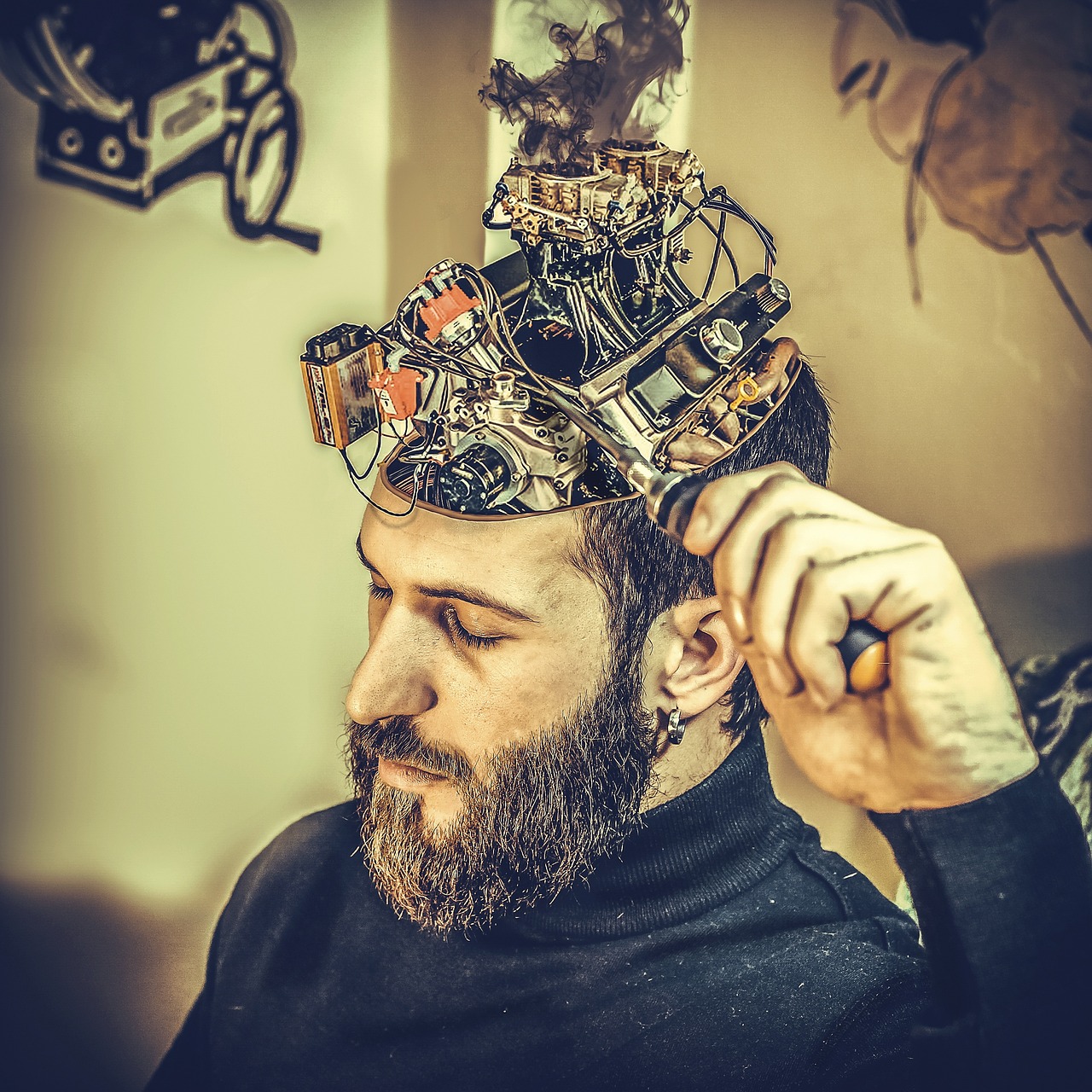
Manufacturing Consent
Noam Chomsky's concept of is a powerful lens through which to view the intricate relationship between media and politics. In his seminal work, he argues that the media landscape is not merely a platform for free expression but rather a carefully orchestrated mechanism that serves the interests of the elite. The term itself suggests that the public's consent to political and economic arrangements is not something that occurs naturally; instead, it is manufactured through selective information dissemination and propaganda.
Chomsky posits that the media operates under a system of filters that determine what news is reported and how it is presented. These filters include factors such as advertising revenue, government interests, and corporate ownership. This leads to a homogenized narrative that often sidelines critical issues and alternative viewpoints. The implications of this are profound: when the media fails to challenge the status quo, it perpetuates a cycle of ignorance and complacency among the populace.
To illustrate this, consider the following table that outlines the key filters in the media system as described by Chomsky:
| Filter | Description |
|---|---|
| Ownership | Concentrated ownership limits diversity of viewpoints and prioritizes profit over public interest. |
| Advertising | Media outlets depend on advertising revenue, leading to a bias towards content that attracts advertisers. |
| Sources | Media often relies on government and corporate sources, which can skew reporting towards elite interests. |
| Flak | Negative responses to media content can pressure outlets to conform to established narratives. |
| Anti-Communism | Historical context of anti-communism shapes media narratives, often labeling dissent as un-American. |
This systematic manipulation of information not only shapes public opinion but also reinforces existing power structures. Chomsky argues that in a truly democratic society, the media should serve as a watchdog, holding power to account rather than colluding with it. However, when media outlets prioritize the interests of their owners and advertisers, they become complicit in the very systems of oppression they should be challenging.
Chomsky's critique of media extends beyond mere observation; he calls for a critical awakening among the public. He emphasizes the need for media literacy—the ability to critically evaluate media messages and discern the underlying agendas. By fostering a culture of questioning and skepticism, individuals can break free from the manufactured consent that often dictates their beliefs and actions. This is not just an academic exercise; it is a vital step toward reclaiming agency in a world where information is often weaponized.
In summary, the concept of serves as a crucial reminder of the responsibilities that come with media consumption. As citizens, we must strive to engage with information critically, seeking out diverse perspectives and questioning the narratives that dominate public discourse. Only then can we hope to dismantle the structures that seek to control our thoughts and actions.
- What is "Manufacturing Consent"? It is a concept developed by Noam Chomsky that describes how media can shape public opinion in ways that serve elite interests.
- Why is media literacy important? Media literacy empowers individuals to critically analyze information, helping them to navigate biases and misinformation.
- How does media ownership affect news reporting? Concentrated media ownership can lead to a lack of diversity in viewpoints and a prioritization of profit over the public interest.

Media Ownership and Control
Noam Chomsky's insights into media ownership and control reveal a troubling landscape where a handful of corporations wield immense power over what information reaches the public. This concentration of media ownership isn't just a minor issue; it's a fundamental problem that shapes the narratives we consume daily. When a few powerful entities control the majority of news outlets, the diversity of perspectives diminishes significantly. Imagine a world where only a few companies dictate the stories we hear, the issues we discuss, and even the opinions we form. It's like having a single conductor leading an orchestra, where every musician plays the same tune, drowning out the unique melodies that could enrich our understanding of the world.
Chomsky argues that this homogenization of media narratives serves the interests of the elite, often sidelining critical issues that affect the broader population. For example, topics like climate change, wealth inequality, and social justice can be downplayed or misrepresented, leaving the public with a skewed understanding of reality. To illustrate this point, consider the following table that outlines the major media conglomerates and their subsidiaries:
| Media Conglomerate | Subsidiaries |
|---|---|
| Comcast | NBCUniversal, Sky Group |
| Disney | ABC, ESPN, Marvel |
| ViacomCBS | Paramount, CBS, MTV |
| AT&T | WarnerMedia, HBO |
This table serves as a stark reminder of how few players dominate the media landscape, which raises critical questions about diversity of thought. With such concentrated ownership, how can we expect a variety of viewpoints to emerge? Chomsky's critiques highlight that this lack of diversity not only limits our understanding but also poses a threat to the very fabric of democracy. If the media is supposed to be the watchdog of society, how can it effectively do its job when it is beholden to corporate interests?
Furthermore, Chomsky emphasizes the importance of media literacy in navigating this challenging environment. He argues that individuals must develop the skills to critically assess the information they consume. This means questioning the sources of our news, recognizing potential biases, and seeking out alternative viewpoints. In a world saturated with information, being discerning is not just beneficial; it's essential. By empowering ourselves with knowledge and critical thinking skills, we can resist the manipulation of information and take back control of our understanding.
In conclusion, Chomsky's analysis of media ownership and control serves as a vital reminder of the challenges we face in the digital age. As consumers of information, we must remain vigilant and proactive in seeking out diverse perspectives, ensuring that our understanding of the world is not limited by the interests of a few powerful entities.
- What is Noam Chomsky's main argument regarding media ownership?
Chomsky argues that concentrated media ownership leads to a homogenization of narratives, which undermines democracy and public discourse. - How does media ownership affect public perception?
When a few corporations control the media, they can shape public perception by prioritizing certain stories and viewpoints over others, often aligning with elite interests. - What can individuals do to combat media manipulation?
Chomsky advocates for media literacy, encouraging individuals to critically assess their information sources and seek out diverse perspectives.

Critical Thinking and Media Literacy
Noam Chomsky's advocacy for critical thinking and media literacy is a clarion call for individuals in today's information-saturated world. In an era where news is just a click away, the ability to discern fact from fiction is more crucial than ever. Chomsky argues that the average citizen must not only consume information passively but should actively engage with it, questioning the sources and motives behind the narratives presented. This engagement is akin to being a detective in a world full of misinformation, where every headline could be a clue to the truth or a red herring designed to mislead.
Chomsky believes that developing media literacy is essential for fostering a well-informed public capable of participating in democratic processes. He emphasizes that media literacy involves more than just understanding how to navigate various platforms; it requires a critical examination of the content itself. This means asking questions like:
- Who owns this media outlet, and what are their interests?
- What is the agenda behind this report?
- Are there alternative perspectives that are not being represented?
By encouraging individuals to ask these questions, Chomsky believes we can cultivate a society that values truth and integrity over sensationalism and propaganda. It's about empowering citizens to become active participants in their own understanding of the world, rather than passive consumers of information.
Furthermore, Chomsky highlights the role of education in promoting media literacy. He argues that schools should integrate critical thinking skills into their curricula, teaching students how to analyze media messages critically and recognize bias. In a world where corporate interests often dictate the news cycle, having the tools to discern the truth becomes a form of social empowerment.
In conclusion, Chomsky’s call for heightened media literacy is not just about understanding media; it’s about fostering a culture of informed citizenship. By developing critical thinking skills, individuals can challenge the status quo, hold power accountable, and contribute to a more equitable society. It’s a reminder that in the quest for knowledge, we must not only seek information but also engage with it thoughtfully and critically.
- What is media literacy? Media literacy is the ability to access, analyze, evaluate, and create media in various forms. It empowers individuals to understand the role of media in society and make informed decisions.
- Why is critical thinking important? Critical thinking is essential because it enables individuals to assess information critically, recognize biases, and differentiate between fact and opinion, which is crucial in a world filled with misinformation.
- How can I improve my media literacy? You can improve your media literacy by actively questioning the sources of your information, seeking diverse perspectives, and educating yourself about media production and ownership.

The Role of Intellectuals
Noam Chomsky has long championed the idea that intellectuals have a critical role to play in society. They are not just scholars hidden away in their ivory towers; instead, they have a responsibility to engage with the public and challenge prevailing norms. Chomsky argues that intellectuals must use their knowledge and expertise to inform and empower citizens, especially when it comes to issues of social justice and political power. This engagement is crucial because, without it, the voices of the marginalized and oppressed can easily be drowned out by those in power.
Chomsky believes that the main job of intellectuals is to act as a counterbalance to the powers that be. This means questioning authority, scrutinizing policies, and holding leaders accountable. He posits that intellectuals should not shy away from controversial topics; rather, they should embrace them. By doing so, they can foster a culture of critical thinking and encourage the public to ask difficult questions. After all, how can a society grow if its thinkers are afraid to challenge the status quo?
Moreover, Chomsky emphasizes that intellectuals must be aware of their own biases and the societal structures that influence their perspectives. This self-awareness is vital in order to maintain integrity and credibility. When intellectuals align themselves too closely with power, they risk becoming mere propagandists for the elite, rather than advocates for the people. Chomsky's call for intellectuals to adopt a more humble approach resonates deeply in today's world, where misinformation and propaganda are rampant.
In Chomsky's view, the relationship between intellectuals and the public should be symbiotic. Intellectuals must not only disseminate knowledge but also actively listen to the concerns and experiences of everyday people. This two-way street can lead to a more informed and engaged populace. As Chomsky puts it, "The responsibility of intellectuals is to speak the truth and expose lies." By doing so, they can help create a more equitable society.
To illustrate this point further, consider the following table that summarizes the core responsibilities of intellectuals according to Chomsky:
| Responsibility | Description |
|---|---|
| Question Authority | Challenge and scrutinize those in power. |
| Promote Critical Thinking | Encourage the public to think critically about information. |
| Engage with the Public | Listen to and address the concerns of citizens. |
| Maintain Integrity | Avoid aligning too closely with power structures. |
| Advocate for Social Justice | Use knowledge to fight for the marginalized. |
Ultimately, Chomsky's vision for intellectuals is one of active participation and responsibility. He believes that when intellectuals step up to the plate and engage with the public, they can help to foster a more just and equitable society. This is not just an idealistic notion; it is a necessary condition for the health of any democracy. So, the next time you think of intellectuals, remember that their role is not just about knowledge—it's about action, advocacy, and accountability.
- What is Noam Chomsky's view on the role of intellectuals?
Chomsky believes that intellectuals have a responsibility to challenge authority, promote social justice, and engage with the public. - Why is critical thinking important for intellectuals?
Critical thinking enables intellectuals to question power structures and foster informed public discourse. - How can intellectuals maintain their integrity?
By being aware of their biases and avoiding alignment with powerful entities, intellectuals can uphold their credibility. - What is the relationship between intellectuals and the public?
Chomsky advocates for a symbiotic relationship where intellectuals inform the public while also listening to their concerns.

Chomsky's Views on Anarchism
Noam Chomsky's perspective on anarchism is deeply rooted in his belief that true democracy can only flourish in environments free from oppressive structures. He argues that the traditional forms of governance often concentrate power in the hands of a few, leading to systemic inequalities that undermine the very essence of democratic ideals. Chomsky’s vision of anarchism is not about chaos or the absence of order; rather, it advocates for a decentralized system where power is distributed among the people, allowing for genuine participation in decision-making processes.
At the core of Chomsky's anarchist philosophy is the idea of decentralization. He emphasizes the need for local governance and community autonomy, arguing that individuals should have a say in the matters that affect their lives. This grassroots approach empowers citizens, fostering a sense of responsibility and engagement. Chomsky believes that when people are given the tools and authority to govern themselves, they are more likely to create equitable and just societies. He often draws parallels between this vision and various historical movements that have sought to dismantle hierarchical structures in favor of more egalitarian systems.
Chomsky's critique of capitalism also intertwines with his anarchist views. He argues that capitalism inherently perpetuates inequality and exploitation, prioritizing profit over human needs. In his view, economic systems should be restructured to focus on social welfare and environmental sustainability. This critique leads him to propose alternatives that align more closely with anarchist principles, advocating for cooperative models of production and community-based economies. By challenging the status quo, Chomsky encourages a reevaluation of how societies can organize themselves to better serve their members.
Moreover, Chomsky underscores the importance of education in promoting anarchist values. He believes that intellectuals and educators have a crucial role in fostering critical thinking and encouraging individuals to question authority. By nurturing a culture of inquiry, Chomsky asserts that society can cultivate a more informed citizenry capable of challenging oppressive systems. This educational aspect is vital for the survival of any anarchist movement, as it equips individuals with the knowledge and skills necessary to advocate for their rights and the rights of others.
In summary, Chomsky’s views on anarchism present a compelling argument for a shift toward decentralized governance and community autonomy. He advocates for a society where power is not concentrated but shared, allowing for true democratic engagement. His critique of capitalism further reinforces the need for systemic change, urging a reevaluation of our economic priorities. Through education and critical discourse, Chomsky believes that individuals can be empowered to challenge existing power structures and work towards a more just and equitable world.
- What is Noam Chomsky's stance on democracy?
Chomsky believes that true democracy can only exist when power is decentralized and shared among the people, rather than concentrated in the hands of a few. - How does Chomsky view capitalism?
He critiques capitalism for perpetuating inequality and exploitation, advocating for economic systems that prioritize human needs over profit. - What role do intellectuals play in Chomsky's philosophy?
Chomsky argues that intellectuals have a responsibility to challenge authority and advocate for social justice, using their knowledge to inform and engage the public. - What does Chomsky mean by decentralization?
Decentralization refers to the distribution of power and decision-making authority to local communities, allowing for more participatory governance.

Decentralization and Autonomy
Noam Chomsky's vision of decentralization and autonomy is rooted in the belief that genuine democracy cannot exist without empowering local communities. He argues that when power is concentrated in a few hands—whether in government, corporations, or other institutions—it inevitably leads to oppression and disenfranchisement of the masses. Chomsky advocates for a system where decision-making is distributed among individuals at the grassroots level, allowing for a more equitable and just society.
Imagine a world where every community has the authority to make decisions that directly affect their lives. This is not just a utopian dream for Chomsky; it’s a necessary condition for a thriving democracy. He believes that local governance fosters a sense of responsibility and ownership among citizens, encouraging them to engage actively in the political process. When people feel that they have a stake in their community, they are more likely to participate in discussions and advocate for their rights.
Chomsky’s emphasis on autonomy extends to various aspects of life, including economic, social, and cultural dimensions. He argues that communities should have the freedom to determine their own paths without interference from centralized authorities. This autonomy allows for diverse solutions to emerge that are tailored to the unique needs of each community. For instance, in a decentralized system, local governments can prioritize sustainable practices that align with their environmental conditions and cultural values.
Moreover, Chomsky points out that decentralization can act as a safeguard against tyranny. By distributing power, it becomes more challenging for any single entity to impose its will on the populace. This distribution not only enhances democratic participation but also promotes accountability among leaders. When decision-making is transparent and close to the people, it fosters a culture of trust and collaboration.
However, Chomsky acknowledges that achieving true decentralization is not without its challenges. It requires a shift in societal values and structures that currently favor centralization. The transition to a decentralized system involves dismantling existing power hierarchies and creating new frameworks that prioritize community engagement and self-determination. This process can be gradual and may face resistance from those who benefit from the status quo.
In summary, Chomsky’s advocacy for decentralization and autonomy is a call to action for individuals to reclaim their power. It’s about more than just governance; it’s about fostering a culture where everyone has a voice and a role in shaping their future. By embracing these principles, communities can work towards a more just and equitable society, where the needs of the many are prioritized over the interests of the few.
- What is Noam Chomsky's stance on democracy? Chomsky believes that true democracy requires decentralization of power and local governance.
- How does Chomsky view the role of intellectuals? He argues that intellectuals should challenge authority and advocate for social justice, using their knowledge to inform the public.
- What are the benefits of decentralization? Decentralization promotes local decision-making, enhances accountability, and fosters community engagement.
- Why is media literacy important according to Chomsky? Media literacy empowers individuals to critically analyze information and seek diverse perspectives, countering misinformation.

Critique of Capitalism
Noam Chomsky's critique of capitalism is both profound and multifaceted, addressing the systemic issues that arise from a profit-driven economy. He argues that capitalism inherently promotes inequality, exploitation, and a disregard for human welfare. In his view, the relentless pursuit of profit often leads to the marginalization of vulnerable populations and the degradation of the environment. Chomsky believes that the economic system prioritizes the interests of a wealthy elite over the needs of the broader society, creating a chasm between the rich and the poor that is difficult to bridge.
One of Chomsky's key points is that capitalism fosters a culture of consumerism, where individuals are conditioned to equate their self-worth with material possessions. This not only perpetuates inequality but also distracts people from the pressing issues of social justice and environmental sustainability. He posits that the capitalist framework encourages competition over cooperation, leading to a society where people are pitted against one another rather than working together for the common good.
Chomsky also critiques the way capitalism shapes our political landscape. He argues that economic power translates into political power, allowing corporations to exert undue influence over government policies. This results in a governance structure that often prioritizes corporate interests over the welfare of citizens. For instance, policies that could address climate change or inequality are frequently sidelined in favor of those that benefit large corporations. This dynamic raises critical questions about the integrity of democracy itself.
To illustrate his concerns, Chomsky often refers to the concept of neoliberalism, a modern form of capitalism that emphasizes deregulation, privatization, and austerity measures. He argues that neoliberal policies have exacerbated social inequalities and eroded public services, leaving many individuals without essential support systems. The consequences of these policies can be seen in various aspects of society, including education, healthcare, and housing, where access is often determined by one's economic status.
In Chomsky's view, the solution lies in reimagining our economic systems to prioritize human needs over profit. He advocates for alternatives that promote social welfare, environmental sustainability, and equitable resource distribution. This could involve implementing policies that support community-based initiatives, cooperative enterprises, and sustainable practices. By shifting the focus from profit maximization to the well-being of individuals and communities, Chomsky believes we can create a more just and equitable society.
Ultimately, Chomsky's critique of capitalism challenges us to rethink our values and priorities. It invites us to consider how we can build a world where economic systems serve the people, rather than the other way around. By fostering a culture of cooperation and mutual support, we can work towards dismantling the oppressive structures that capitalism often perpetuates.
- What is Chomsky's main argument against capitalism? Chomsky argues that capitalism promotes inequality, exploitation, and prioritizes profit over human welfare.
- How does capitalism affect democracy according to Chomsky? He suggests that economic power leads to political power, allowing corporations to influence government policies to the detriment of citizens.
- What alternatives to capitalism does Chomsky propose? Chomsky advocates for economic systems that prioritize human needs, social welfare, and environmental sustainability.
- What role does consumerism play in Chomsky's critique? Chomsky believes that consumerism distracts individuals from social justice issues and perpetuates inequality.
Frequently Asked Questions
- What are the main components of Noam Chomsky's political philosophy?
Noam Chomsky's political philosophy revolves around critiques of power structures, media influence, and the role of intellectuals. He challenges the legitimacy of authority and highlights how concentrated power undermines democracy and promotes inequality.
- How does Chomsky view the role of media in politics?
Chomsky argues that the media plays a crucial role in shaping public perception and discourse. He critiques how corporate interests skew news coverage, leading to misinformation and a lack of critical analysis among the public. His concept of "Manufacturing Consent" illustrates how media can serve as a tool for propaganda, aligning public opinion with elite interests.
- What does Chomsky mean by 'Manufacturing Consent'?
'Manufacturing Consent' refers to the process by which media shapes public opinion through selective reporting and framing of information. Chomsky emphasizes that this manipulation often benefits the powerful while marginalizing dissenting voices, thus posing a threat to genuine democratic discourse.
- Why does Chomsky advocate for media literacy?
Chomsky believes that media literacy is essential for empowering citizens to critically evaluate information sources. By encouraging individuals to question narratives and seek alternative viewpoints, he aims to foster a more informed public capable of navigating the complexities of the digital age.
- What is Chomsky's perspective on anarchism?
Chomsky identifies with anarchist principles, advocating for decentralized governance and participatory decision-making. He argues that true democracy can only flourish when oppressive structures are dismantled, allowing for greater community autonomy and local governance.
- How does Chomsky critique capitalism?
Chomsky critiques capitalism for perpetuating inequality and exploitation. He believes that economic systems should prioritize human needs over profit, advocating for alternatives that promote social welfare and environmental sustainability. His views challenge the notion that capitalism inherently leads to progress.
- What responsibility do intellectuals have, according to Chomsky?
Chomsky asserts that intellectuals have a duty to challenge authority and advocate for social justice. He encourages them to use their knowledge to engage the public on critical issues, fostering a more informed and active citizenry.

